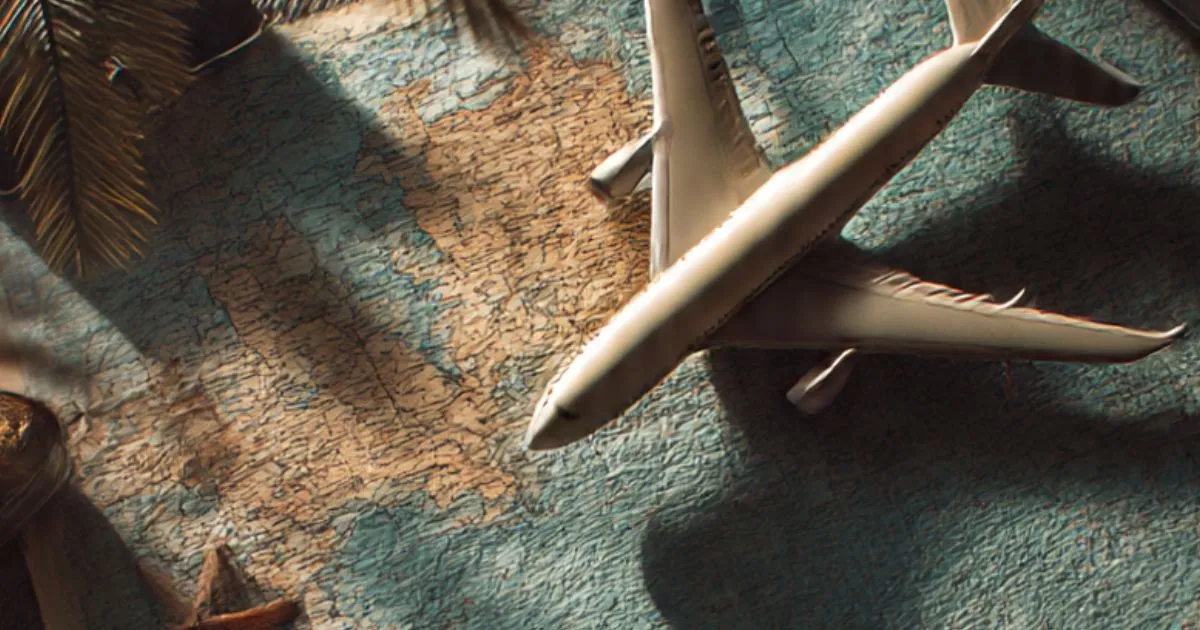Important Tips for Umrah and Hajj: A Guide to Spiritual Success
Table of Contents
Critical Tips for Umrah and Hajj: A Guide to Spiritual Success
Important tips for umrah and hajj often focus on the logistical and ritualistic aspects of the pilgrimage. While knowing how to perform Tawaf and Sa’i is undeniably crucial, the spiritual environment you cultivate for yourself is equally vital. Your journey to the House of Allah can be profoundly elevated or severely hindered by three key factors: the company you keep, your unwavering focus on worship, and the physical health you maintain through nourishing food. This guide delves deep into these often-overlooked areas to ensure your sacred journey is one of acceptance, peace, and divine connection.
The First Pillar of a Blessed Journey: The Power of Good Company
They say you are known by the company you keep, and this wisdom holds immense weight during Umrah and Hajj. The people you travel and lodge with can become your support system in attaining Allah’s pleasure or a source of distraction that diminishes your rewards.
How to Identify and Avoid Bad Company from the Start
The best strategy is proactive. Important tips for umrah and hajj begin with careful planning, and that includes planning your social circle.
- Screen Your Group During Planning: If you’re joining a group, don’t just look at the price. Engage with the group leader and potential companions beforehand. Ask about the group’s general itinerary: is there excessive time allocated for shopping? What is the policy on group activities versus personal worship time?
- Identify Red Flag Traits: Be wary of individuals who consistently exhibit:
- Complaining and Negativity: Those who complain about the heat, the crowds, the food, or the accommodations can drain your spiritual energy and breed resentment.
- Argumentativeness: Someone who is quick to argue over minor fiqh differences or trivial matters can create a toxic environment.
- Materialism: A companion whose primary focus is shopping, taking perfect social media pictures, or discussing worldly affairs constantly can pull you away from the essence of the journey.
- Laxness in Worship: If a potential companion is casual about prayer times or the rules of Ihram during preliminary discussions, it’s a strong indicator of their attitude on the journey.
The Hallmarks of a Good Travel Companion
A good companion is a blessing (Ni’mah). Look for these traits:
- Pious and Knowledgeable: Someone who has studied the rituals and can remind you gently if you make a mistake. Their presence will encourage you to increase in good deeds.
- Patient and Positive: The Hajj and Umrah journey is filled with tests. A patient companion helps you see the blessing in the trial.
- Supportive and Considerate: They are mindful of your needs, whether you’re elderly, feeling unwell, or simply need a moment of quiet reflection.
- Shared Spiritual Goal: Their primary objective aligns with yours: to seek the pleasure of Allah alone.
Consequences: The Good vs. The Bad
Scenario A (The Good Company): You and your companion wake up for Tahajjud. You remind each other of the supplications to be made at the Ka’aba. When you feel tired during Tawaf, they encourage you with a kind word and a du’a. You leave each ritual feeling spiritually uplifted.
Scenario B (The Bad Company): Your companion insists on spending hours at the mall, complaining about the walk to the mosque. They engage in gossip in the hotel room and rush the prayers. You return from your journey feeling spiritually depleted, frustrated, and as if you missed a golden opportunity.
The Prophet Muhammad (peace be upon him) said, “A man is upon the religion of his best friend, so let one of you look at whom he befriends.” (Sunan Abi Dawud). This principle is never more critical than on your pilgrimage.
The Second Pillar: Unwavering Focus on Ibadah as the Primary Objective
The single most important of all important tips for umrah and hajj is to protect the primary objective of your journey: worship. Every other activity—eating, sleeping, traveling—is in service of this goal.
Making the Most of Your Journey: A Focused Mindset
- Set Personal Spiritual Goals: Before you go, write down what you want to achieve. Is it to have your sins forgiven? To become a better Muslim upon return? To make sincere du’a for specific matters? Revisit this intention daily.
- Minimize Worldly Distractions: Limit phone use. Inform family you will be less available. Use your phone for beneficial purposes only, like Quran apps or navigational aids to the mosque.
- Educate Yourself: The more you understand the meaning behind each ritual, the more profound your experience will be. Don’t just perform the actions mechanically. Read the tafsir of the relevant Quranic verses and the history of the rites.
The Viable Alternative: The Solo Traveler’s Guide
If finding a compatible group seems difficult, or if you crave a deeply personal connection with Allah, consider performing Umrah or Hajj alone. It is not only possible but can be incredibly rewarding.
How to Be a Successful Solo Traveler for Umrah and Hajj
- Thorough Research is Key: This is the most important tip for umrah and hajj for a solo traveler. You are your own manager. Research everything: visa processes, hotels’ proximity to the Haram, reliable taxi apps (like Uber or Careem in KSA), and the layout of the holy sites.
- Leverage Technology: Use Google Maps to navigate. Download Quran and du’a apps. Use translation apps to bridge language gaps.
- Embrace the Silence: The solitude provides a unique opportunity for self-reflection, uninterrupted du’a, and connecting with the Quran on a deeper level without the need to coordinate with others.
- Stay Connected Safely: Have a regular check-in time with a family member back home for safety.
How to Lower Expenses as a Solo Traveler
- Travel Off-Peak: Umrah during non-school holiday periods is significantly cheaper.
- Book in Advance: Flights and accommodations are cheapest when booked months ahead.
- Consider Simpler Accommodations: If your objective is to be in the Haram, a modest hotel close to the mosque is better than a luxurious one far away. You’ll save money and time on commuting.
- Self-Catering: Book a hotel with a kitchenette. Preparing simple meals from a local grocery store is far cheaper than eating out for every meal.
The solo journey demands more self-reliance, but it offers an unfiltered, personal audience with your Lord.
The Third Pillar: Fueling Your Worship with Healthy Food
Your body is a vehicle for worship. If it is weak, sick, or lethargic, your ability to perform Ibadah with energy and presence of mind is severely compromised. Therefore, paying attention to nutrition is one of the most practical important tips for umrah and hajj.
Why Healthy Food is a Form of Ibadah During Pilgrimage
Eating well is not a distraction; it is a means to strengthen your worship. The goal is to choose food that:
- Sustains Energy: Complex carbohydrates and proteins provide slow-release energy, crucial for the long walks and hours of standing in prayer.
- Boosts Hydration: The Saudi climate is dry. Dehydration can lead to headaches, fatigue, and serious health issues.
- Prevents Illness: Light, easily digestible foods prevent stomach upsets and keep your system running smoothly.
Scenarios: The Right Fuel vs. The Wrong Fuel
Scenario A (The Healthy Eater): For Suhoor, you eat oats with dates and drink plenty of water. This gives you sustained energy for your Fajr prayer and morning Tawaf. For Iftar, you break your fast with dates and water, pray Maghrib, and then have a balanced meal of grilled chicken, rice, and vegetables. You feel light, agile, and ready for the night prayers (Tahajjud/Isha).
Scenario B (The Unhealthy Eater): You skip Suhoor or have a sugary pastry. You feel a sugar crash an hour later, becoming lethargic during Tawaf. For Iftar, you indulge in heavy, greasy food from a fast-food outlet. You feel so heavy and sluggish that you struggle to complete your Isha prayer, let alone any voluntary worship. You may even suffer from indigestion, ruining your entire night.
Things to Do Before Umrah and Hajj: A Nutritional Plan
- Research Food Options: Locate supermarkets and grocery stores near your hotel. Stock up on healthy snacks like nuts, dates, fruits, and yogurt.
- Pack Supplements: Consider bringing electrolyte powders to add to your water, especially if you travel in the summer months.
- Set a Rule: Make a personal pact to avoid heavy, fried, and overly spicy foods for the duration of your pilgrimage. Treat your body as the trust (Amanah) that it is.
Conclusion: A Holistic Approach to Your Sacred Journey
The important tips for umrah and hajj extend far beyond the physical rites. By consciously choosing righteous companions, fiercely protecting your intention to worship, and wisely nourishing your body, you build a foundation for a truly transformative experience. These three pillars—good company, focused Ibadah, and healthy sustenance—work in harmony to ensure that your journey to the House of Allah is not just a trip, but a profound spiritual rebirth that resonates long after you return home. May Allah accept your pilgrimage and grant you a safe and spiritually uplifting journey.
Image Alt Text: A diverse group of focused pilgrims performing Tawaf around the Ka’aba, representing the important tips for umrah and hajj.
External Resources with DoFollow Links:
- The Official Saudi Ministry of Hajj and Umrah Portal for the latest regulations and guides.
- IslamQA: A Detailed Guide to Hajj and Umrah for in-depth rulings on the rituals.
Internal Links (Example):

